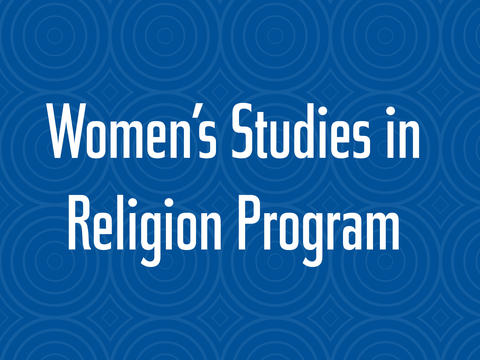WSRP Announces 2021–22 Research Associates

Five new Research Associates will join the Women’s Studies in Religion Program at HDS to work on book-length projects during the 2021–22 academic year. By bringing together scholars from different disciplines and research areas, commonalities in religion and gender emerge.
While working on their projects, the WSRP Research Associates teach a one-semester course and deliver a lecture on their research.
Swasti Bhattacharyya
Visiting Professor Emerita of Women’s Studies and Ethics
Project title: The Freedom to Always Love: Interweaving Sustainability, Spirituality, and Sarvodaya
Since 1959, the Brahma Vidya Mandir Ashram in Maharashtra has been home to a community of women who model wholistic ecofeminism grounded in Indian Dharmic traditions. Followers of Vinoba Bhave (1895 –1982), disciple, friend, confidant, and spiritual successor to MK Gandhi, their lives and voices expand the diversity of perspectives and approaches in ecofeminism and religious studies. Based on a lifetime of contact with the ashram and extensive interviews conducted with seventeen of the sisters from 2006–11, this project views their work through the lens of applied ethics.

Nurhaizatul Jamil
Visiting Assistant Professor of Women's Studies and Islam
Project title: The 7 Habits of Effective Muslims: Islamic Self-Help and Gendered Disciplining in Contemporary Singapore
Through ethnographic analysis, the project examines the ways that Islamic educational classes inspired young, upwardly-mobile, fashionable, and digitally-savvy women to foreground faith in their daily lives by re-casting it through the frame of self-help. Taught by Singaporean graduates of Cairo’s Al-Azhar university, these classes draw from the Quran and Hadith, as well as self-help rhetoric and pop culture. Yet, Muslim women’s self-transformation disenfranchises working-class Malays–prompting an analysis of the recalibration of hope as a strategy that simultaneously divests from, and extends, the state’s production of legibility.

Rahina Muazu
Visiting Lecturer on Women's Studies and Islam
Project title: The Female Voice in the Qurʾan and Qurʾan Commentary: Rereading verse 33:32 from a Gender Perspective
Is the voice of a Muslim woman part of her nudity (‘awra)? Using gender as an analytical category, this research plans an exegetical hermeneutical study of the Qur’anic verse 33:32 to find out the position of the female voice and how it is interpreted in the West African Hausa society. Drawing on extensive field work, the project makes a valuable and new contribution to women’s studies by both engaging the lived experiences of Black West African Muslims and by contributing to debates on women’s vocal nudity and women’s perception.

Delfi I. Nieto-Isabel
Visiting Lecturer on Women’s Studies and Religion and Society
Project title: Networks of Defiance: Women and Heretical Conversion in the Late Middle Ages
Based on inquisitorial records, this project analyzes the role of women within non-mainstream religious networks in late medieval France from a structural and functional perspective. Focusing on groups of Cathars, Beguins of Languedoc and Waldensians, it combines a relational reading of inquisitorial sources and the methods of Social Network Analysis to explore women’s participation in the circulation of religious ideas and the spread of practices within these late medieval dissident Christian movements.

Heather White
Visiting Assistant Professor of Religion and Gender and Queer Studies
Project title: Hosting the Counterculture: Histories of Queer Episcopal New York
Following the 1969 Stonewall Riots, queer activists found an unlikely community center: The Church of the Holy Apostles (Episcopal) hosted most of New York’s gay organizations. Drawing from interviews and archival research, this project re-examines this notoriously secular moment to illuminate the unexpected ways that religion shaped queer organizing.
